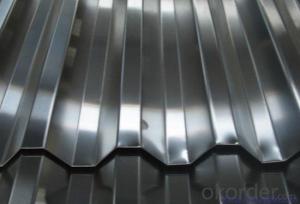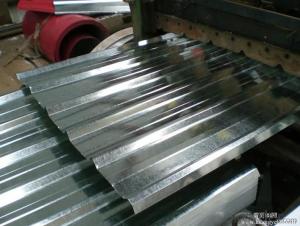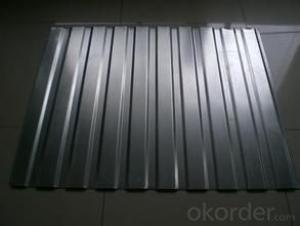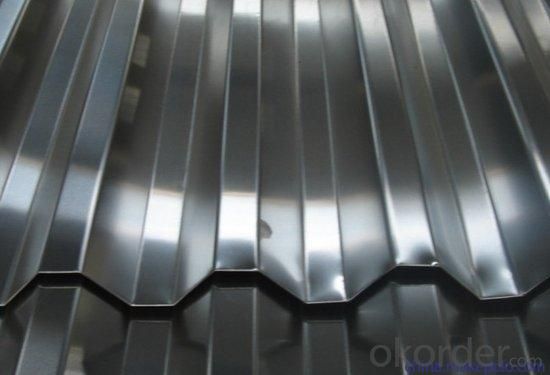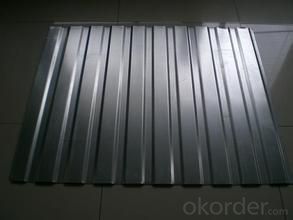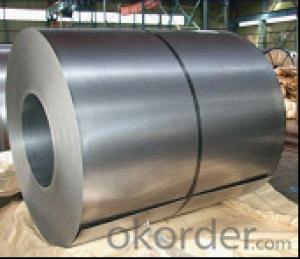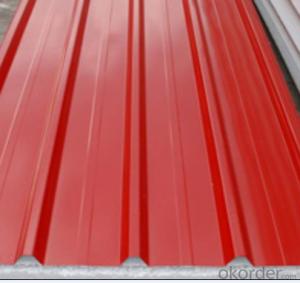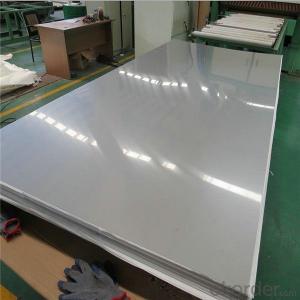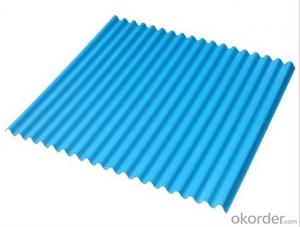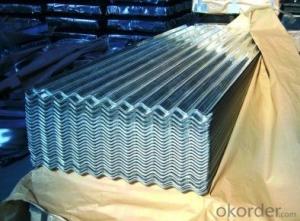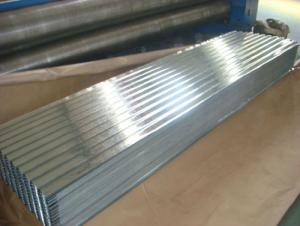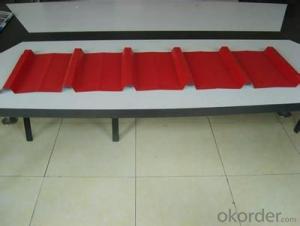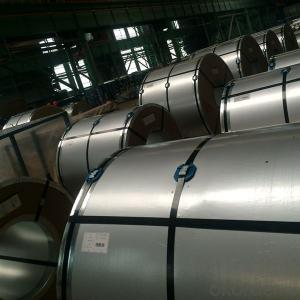Galvanized Sheet Corrugated Panels with Best Quality
- Loading Port:
- Tianjin
- Payment Terms:
- TT or LC
- Min Order Qty:
- 500 m²
- Supply Capability:
- 5000 m²/month
OKorder Service Pledge
OKorder Financial Service
You Might Also Like
Specifications
1.various colors
2.beautiful appearance
3.waterproof,corrosion resistance,long span
4.high strength
5.easy installation
Application
It is widely used as thermal insulation material for high-temperature pipe, tank, equipment and vessel in petroleum, chemical and metallurgy industry. It can also be applied to partition, ceiling and building wall as thermal insulation and sound absorption material in construction industry.
Features
1 excellent insulation functions
2 good fireproofing
3 heavy load bearing capacity
4 can be designed as special requirement
production description
thickness:
the thickness of upper and lower plate:0.0-0.6mm
rock wool:50mm-150mm
Advantages:
1.heat,sound insulation.
2.strong moisture proofness .
3.excellent fire protecting performance.
4.smoke free, non-poisonous.
5.smooth appearance ,beautiful appearance.
6.colorful, different colors can be provided.
We can provide different special specification according to customers' requirements.
Application:
Widely used for Ships, metallurgy, electric power, construction and other industries.
Our Rock Wool Panel mostly used for building wall, roof heat preservation sound insulation; Building walls, firewall, fire doors and elevator well fire and noise reduction.
Normal size:
thickness of Rock Wool:50,75,100mm,150mm
top board:0.3-0.5mm,back board:0.3-0.5mm.
can be designed by customers' requirements.
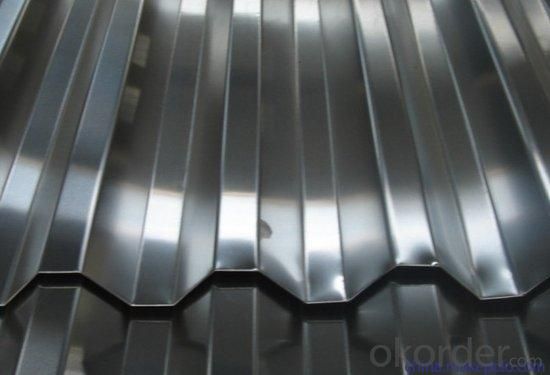
- Q: Q235 is hot rolled steel or cold rolled steel?
- Q235 hot rolling and cold rolling are available, depending on availabilityThe need for heating the material before hot rolling, rolling process or rolling, usually heated to above the recrystallization temperature, such as more than 1000 degrees; cold rolling is the process does not require heating of the material, or the material is heated to the temperature below the recrystallization.
- Q: Can steel sheets be used for construction purposes?
- Yes, steel sheets can be used for construction purposes. They are commonly used in the construction industry for various applications such as roofing, walls, flooring, and structural frameworks. Steel sheets provide strength, durability, and fire resistance, making them an ideal choice for construction projects.
- Q: How do steel sheets compare to aluminum sheets in terms of strength?
- In general, steel sheets exhibit greater strength than aluminum sheets. Steel possesses a reputation for its remarkable tensile strength, enabling it to endure substantial forces without distorting or fracturing. Conversely, aluminum sheets demonstrate lower tensile strength and are inclined to bend or distort when subjected to heavy loads. Nevertheless, it is important to acknowledge that aluminum sheets can still possess sufficient strength for numerous applications, particularly when taking into account their lower density when compared to steel. Moreover, aluminum sheets possess the advantage of being lighter in weight, resistant to corrosion, and exhibiting superior thermal conductivity in relation to steel sheets. Consequently, the decision between steel and aluminum sheets hinges upon the specific requirements of the project, taking into consideration factors such as strength, weight, resistance to corrosion, and thermal properties.
- Q: What is the difference between a galvanized and stainless steel sheet?
- A galvanized steel sheet is coated with a layer of zinc to protect it from rust and corrosion, while a stainless steel sheet is made from an alloy of steel and chromium that naturally resists corrosion. This means that a galvanized steel sheet is more susceptible to rust over time, while a stainless steel sheet is more durable and has a longer lifespan.
- Q: What is the average bending radius for steel sheets?
- The average bending radius for steel sheets can vary depending on the thickness and type of steel being used. However, a common range for the average bending radius of steel sheets is between 0.5 to 2 times the thickness of the sheet.
- Q: Can steel sheets be used for manufacturing musical instruments?
- Yes, steel sheets can be used for manufacturing certain musical instruments such as steel drums, steel guitars, and some percussion instruments.
- Q: What are the common widths of steel sheets?
- The common widths of steel sheets typically range from 24 inches to 72 inches, with increments of 6 inches.
- Q: Are steel sheets prone to warping or bending?
- Yes, steel sheets are prone to warping or bending under certain conditions. Factors such as temperature changes, excessive weight, or improper handling can cause steel sheets to warp or bend.
- Q: Can steel sheets be used for agricultural equipment?
- Yes, steel sheets can be used for agricultural equipment. Steel is a versatile and durable material that is commonly used in the fabrication of various agricultural machinery and equipment. It is known for its strength, rigidity, and resistance to wear and tear, making it suitable for heavy-duty applications in farming and agriculture. Steel sheets can be used to manufacture a wide range of agricultural equipment, such as plows, cultivators, seeders, harvesters, trailers, and storage containers. These equipment require sturdy materials to withstand the demanding conditions of the agricultural environment, including exposure to soil, moisture, and heavy loads. Steel sheets can be formed and manipulated into different shapes and sizes, allowing for the customization of agricultural equipment to meet specific requirements. Additionally, steel can be easily welded, ensuring the structural integrity of the equipment and enabling repairs if necessary. Furthermore, steel sheets can be coated or galvanized to enhance their corrosion resistance, further increasing their longevity and durability in agricultural applications. This helps to protect the equipment from rust and deterioration caused by exposure to various weather conditions and chemicals commonly found in farming activities. Overall, steel sheets are a suitable material for agricultural equipment due to their strength, durability, and versatility. Their use in the manufacturing of agricultural machinery helps to ensure reliable and efficient performance, contributing to the productivity and success of farming operations.
- Q: What is the cost of steel sheets compared to other metals?
- The cost of steel sheets varies depending on the type of steel and market conditions, but generally speaking, steel sheets tend to be more cost-effective compared to other metals such as aluminum or titanium. Steel is a widely available and versatile material, making it more affordable for various applications. However, it's important to note that specific pricing can fluctuate due to factors such as quantity, quality, and market demand.
Send your message to us
Galvanized Sheet Corrugated Panels with Best Quality
- Loading Port:
- Tianjin
- Payment Terms:
- TT or LC
- Min Order Qty:
- 500 m²
- Supply Capability:
- 5000 m²/month
OKorder Service Pledge
OKorder Financial Service
Similar products
Hot products
Hot Searches
Related keywords
